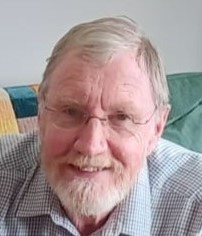Rick Warren, best-selling author and pastor of Saddleback Church in Lake Forest, California, said recently that he is preparing for retirement, but he's not planning to spend it in 20 or more years of leisure. Explaining his perspective on retirement from a biblical context, he calls it a 'transition.' 'The Bible says that as long as your heart is beating God has a plan and purpose for your life… to grow personally, to get to know God, to serve others, and make the world a better place. In retirement, what we have to ask is "What's going to be the centre of my life?" because if you don't have a solid centre it's going to fall apart. Then we have to say, "Who are going to be my life companions; who will be my associates, my circle of influence; what is going to be the character of my life; how am I going to keep growing?"' (1)
These are all questions that we do well to ask as Christian doctors, if we are near 'retirement'. There is only one Bible passage that refers specifically to retirement. In these verses God tells Moses that the Levite priests in the Tent of Meeting must retire:
The Lord said to Moses, 'This applies to the Levites: Men twenty-five years old or more shall come to take part in the work at the Tent of Meeting, but at the age of fifty, they must retire from their regular service and work no longer. They may assist their brothers in performing their duties at the Tent of Meeting, but they themselves must not do the work.' (2)
Despite this specific context, the wisdom of God's message regarding the cessation of regular work is still helpful to us today. God created work, and our work is his divine calling, but there will come a point in our lives when we stop doing regular, full time paid work. The word 'work' in the Numbers passage is the same word used to describe mankind's daily labour in Genesis which declares, 'The Lord God took the man and put him in the Garden of Eden to work it and take care of it.' (3) In the context of Genesis 2:15, the work is Adam's tilling of the ground in the Garden, and by extension all the various types of labour that will follow. It is these and all occupations (tilling the ground, serving in the Tent of Meeting, and the daily work of our own careers in medicine) from which we will one day retire. (4)
Of note is the fact that the retired Levites ' may assist their brothers in performing their duties.' To 'assist' means to help, to guard, or to attend to others. To retire from regular work opens the door to new and different ways to serve God and others.
As a retiree you can assist, help, guard, and attend to the next generation. This may include your family members, neighbours, society in general and the wider global community. For Christian doctors, it surely includes continuing to mentor, support and help our younger colleagues in their journeys of faith and service in medical practice.
Transition and choices
Perhaps the major choice that faces Christian doctors transitioning from paid work to retirement is the issue of whether to carry on, albeit in a reduced capacity, in a similar field to that which we were engaged in before retirement, or to branch out in a completely new (perhaps non-medical) direction. Our education and experience has equipped us with many transferable skills in leadership and problem solving (and perhaps communication skills and teaching) that can be put to good use in many areas of voluntary work. If we have spent significant time working in the NHS, the current generation of retirees also have generous pensions that preclude the need to find further paid work (unfortunately future generations will not fare so well).
Continuing with part time medical work requires remaining in the appraisal-revalidation system, which may prove difficult if we work in a much reduced capacity or in a non-clinical setting, but with some effort this issue can generally be overcome.
Planning and assessing options
It is wise to plan ahead prayerfully prior to actually leaving full-time paid work, rather than waiting until that time arrives before deciding what to do. Many people (particularly those who've been full time in the NHS up to their last working day) will want to have a complete break for a while after stopping work, perhaps to travel, spend time with family or just to relax and unwind. There is nothing wrong with this and it can prove a helpful way of marking the transition from paid work to the next phase of one's life. So what then? For Christian doctors there are a number of possible options to consider. The ones below are just some examples.
1. Working in resource poor countries
There are always opportunities for senior doctors to use their skills (in management, teaching and leadership, if not in clinical practice) in resourcepoor settings in developing countries. The CMF International website 5 is a good place to look for openings, from a few months to several years in duration. If you are already an medical educator, PRIME is always on the lookout for those willing to make recurrent short (1-3 week) trips to teach, and sometimes has longer term opportunities for medical teachers in mission contexts. 6 Retired doctors make up a substantial number of PRIME's tutor database, and many have contributed very significantly to the development and delivery of teaching and training programmes across the world, embedding Christian values and a spiritual perspective in medical curricula and practice in many places.
2. Pastoral counselling
Many Christian doctors have developed skills in listening and pastoral support through their years in practice, and some in retirement move more into this area, perhaps doing further specific training. The whole area of counselling is now tightly regulated and requires appropriate training and supervision which involves substantial investment of time, but there are other types of pastoral support (whether through churches, para-church organisations or secular agencies) which retired doctors may be able to offer voluntarily without undertaking very lengthy further training. Simply being available as a mentor and listening ear to younger colleagues (such as through the CMF Links scheme (7)) is a valuable service, very much in line with the biblical mandate described above.
3. International Poverty and Justice
We live in a world where at least 80% of humanity lives on less than $10 a day, and the poorest 40 percent of the world's population accounts for 5 percent of global income whilst the richest 20 percent accounts for three-quarters of world income, and where climate change is disproportionately affecting the poorest. (8) Christians need to be working actively to try and end international trade injustice and exploitation of the poor world by the rich. Retired Christian doctors have the intellectual capacity and other skills necessary to play an active voluntary role in working, speaking and campaigning to end the disparity between rich and poor and the many injustices and environmental problems that sustain and flow from it. There are many organisations both Christian and secular who will welcome competent volunteers to assist their work in seeking to 'make poverty history'. (9)
4. Hospitality and using your home
The energy and time released by the cessation of paid work may free us up to use our homes more in offering hospitality and support, not just to family and friends but to others in need. For example, some retired Christian doctors have developed specific ministries of informal support to missionaries in need of rest and recuperation, by offering use of their homes and an impartial listening ear. The list could go on. Whatever form the assistance and help we offer to others in our latter years takes is between us and God. But we should take care to remain active, bless others, share and give. As the Psalmist prayed, 'Even when I am old and grey, do not forsake me, my God, till I declare your power to the next generation, your mighty acts to all who are to come.' (Psalm 71:18)
Huw Morgan is a retired GP, medical educator and missionary working with PRIME Partnerships. He is Chair of the CMF International Committee.
































